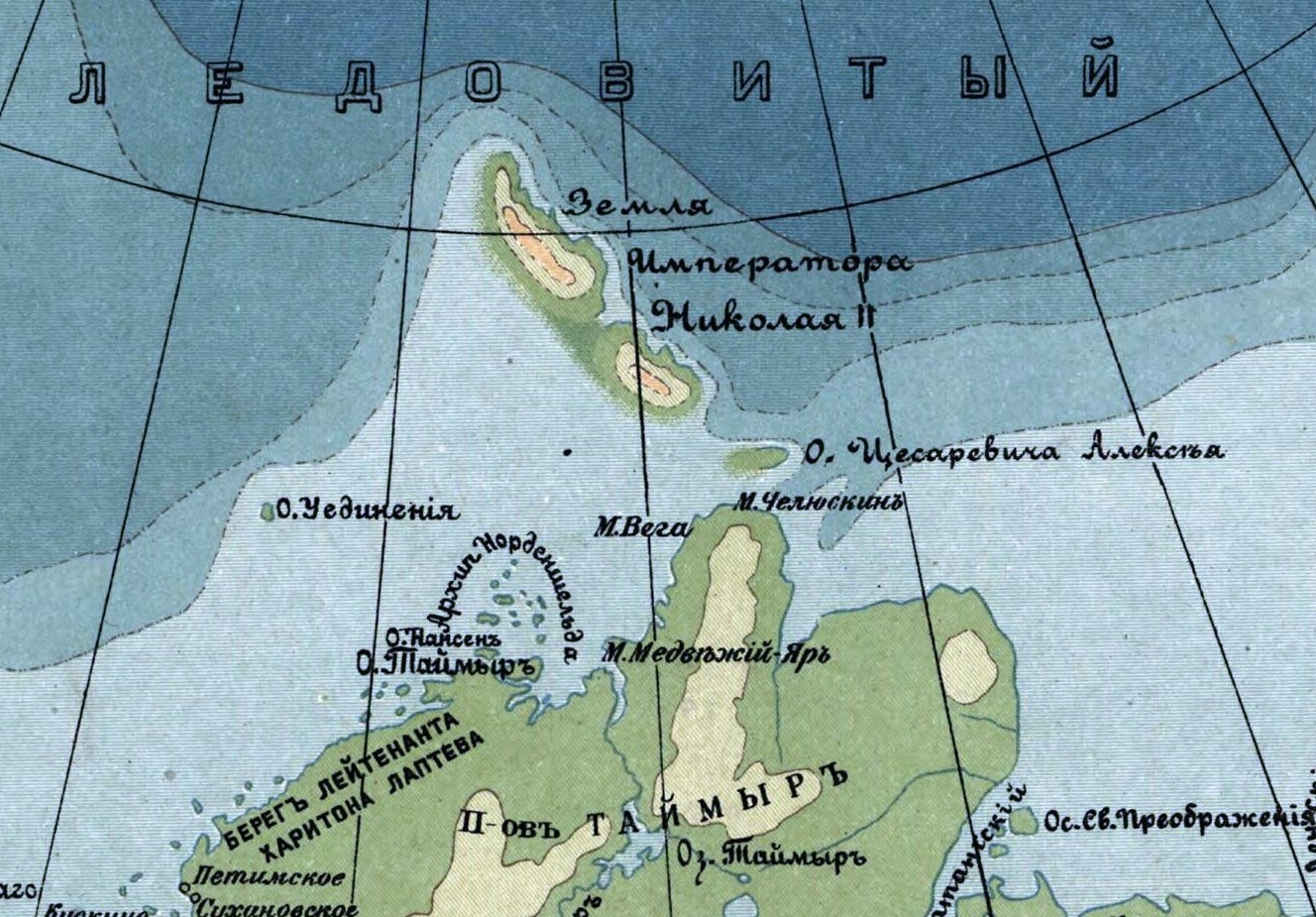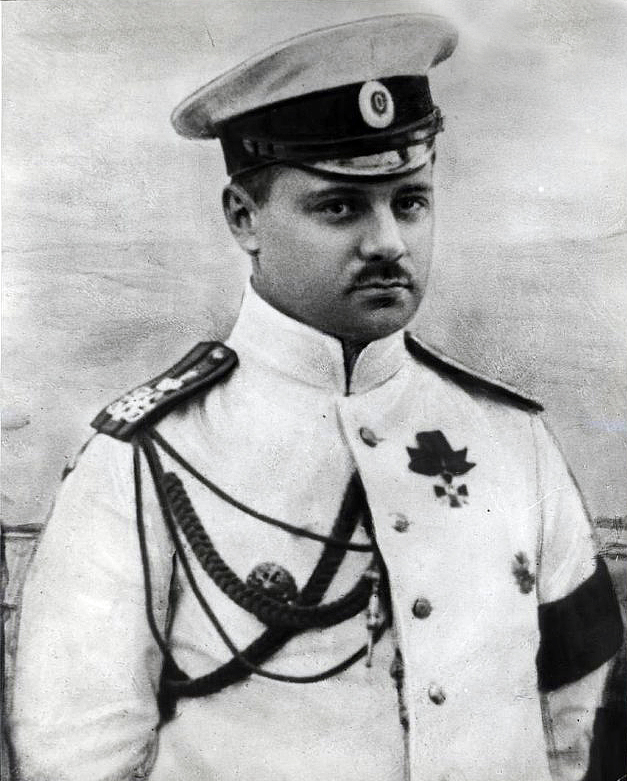|
Maly Taymyr
Maly Taymyr Island (russian: Малый Таймыр, or Little Taymyr Island) is an island in the Laptev Sea, Russian Arctic. Geography It is located off the southeastern end of the Severnaya Zemlya archipelago and northeast of the Taymyr Peninsula and has a smaller island, Starokadomsky Island, close by on its northwestern side. The area of Maly Taymyr Island is and its location is . The Vilkitsky Strait runs south of Maly Taymyr Island and its waters, as well as the waters surrounding the two islands, are covered with pack ice during the long and bitter winters. There are many ice floes even in the short summer, between June and September. Maly Taymyr Island belongs to the Krasnoyarsk Krai administrative division of the Russian Federation and is part of the Great Arctic State Nature Reserve – the largest nature reserve of Russia and one of the biggest in the world. On the northern shores of Maly Taymyr there is a small island named Ostrov Oktyabrenok. History The island wa ... [...More Info...] [...Related Items...] OR: [Wikipedia] [Google] [Baidu] |
Laptev Sea
The Laptev Sea ( rus, мо́ре Ла́птевых, r=more Laptevykh; sah, Лаптевтар байҕаллара, translit=Laptevtar baỹğallara) is a marginal sea of the Arctic Ocean. It is located between the northern coast of Siberia, the Taimyr Peninsula, Severnaya Zemlya and the New Siberian Islands. Its northern boundary passes from the Arctic Cape to a point with co-ordinates of 79°N and 139°E, and ends at the Anisiy Cape. The Kara Sea lies to the west, the East Siberian Sea to the east. The sea is named after the Russian explorers Dmitry Laptev and Khariton Laptev; formerly, it had been known under various names, the last being Nordenskiöld Sea (russian: link=no, мо́ре Норденшёльда), after explorer Adolf Erik Nordenskiöld. The sea has a severe climate with temperatures below 0 °C (32 °F) over more than nine months per year, low water salinity, scarcity of flora, fauna and human population, and low depths (mostly less than 50 meters) ... [...More Info...] [...Related Items...] OR: [Wikipedia] [Google] [Baidu] |
Boris Vilkitsky
Boris Andreyevich Vilkitsky (russian: Бори́с Андре́евич Вильки́цкий) (22 March (3 April N.S.) 1885, Pulkovo – 6 March 1961) was a Russian hydrographer and surveyor. He was the son of Andrey Ippolitovich Vilkitsky. Career Born in Pulkovo, Tsarskoselsky Uyezd (now part of Saint Petersburg), Vilkitsky graduated from the Naval Academy in Saint Petersburg in 1908. He participated in the Russo-Japanese War of 1904–1905. In 1913—1915 he led the Arctic hydrographic expedition on the ships ''"Taimyr"'' and ''"Vaigach"'' with the purpose of further exploration of the Northern Sea Route. In 1913, Vilkitsky's expedition discovered Emperor Nicholas II Land (russian: Земля Императора Николая II, ''Zemlya Imperatora Nikolaya II'') —later renamed 'Severnaya Zemlya', perhaps one of the most important Russian discoveries in the Arctic at the time. Other discoveries were an island that now bears his name ( Vilkitsky Island), as well as t ... [...More Info...] [...Related Items...] OR: [Wikipedia] [Google] [Baidu] |
List Of Islands Of Russia
A ''list'' is any set of items in a row. List or lists may also refer to: People * List (surname) Organizations * List College, an undergraduate division of the Jewish Theological Seminary of America * SC Germania List, German rugby union club Other uses * Angle of list, the leaning to either port or starboard of a ship * List (information), an ordered collection of pieces of information ** List (abstract data type), a method to organize data in computer science * List on Sylt, previously called List, the northernmost village in Germany, on the island of Sylt * ''List'', an alternative term for ''roll'' in flight dynamics * To ''list'' a building, etc., in the UK it means to designate it a listed building that may not be altered without permission * Lists (jousting), the barriers used to designate the tournament area where medieval knights jousted * ''The Book of Lists'', an American series of books with unusual lists See also * The List (other) * Listing ... [...More Info...] [...Related Items...] OR: [Wikipedia] [Google] [Baidu] |
Emperor Nicholas II Land Russian Empire Map
An emperor (from la, imperator, via fro, empereor) is a monarch, and usually the sovereign ruler of an empire or another type of imperial realm. Empress, the female equivalent, may indicate an emperor's wife ( empress consort), mother (empress dowager), or a woman who rules in her own right and name (empress regnant). Emperors are generally recognized to be of the highest monarchic honor and rank, surpassing kings. In Europe, the title of Emperor has been used since the Middle Ages, considered in those times equal or almost equal in dignity to that of Pope due to the latter's position as visible head of the Church and spiritual leader of the Catholic part of Western Europe. The Emperor of Japan is the only currently reigning monarch whose title is translated into English as "Emperor". Both emperors and kings are monarchs or sovereigns, but both emperor and empress are considered the higher monarchical titles. In as much as there is a strict definition of emperor, it is that ... [...More Info...] [...Related Items...] OR: [Wikipedia] [Google] [Baidu] |
October Revolution
The October Revolution,. officially known as the Great October Socialist Revolution. in the Soviet Union, also known as the Bolshevik Revolution, was a revolution in Russia led by the Bolshevik Party of Vladimir Lenin that was a key moment in the larger Russian Revolution of 1917–1923. It was the second revolutionary change of government in Russia in 1917. It took place through an armed insurrection in Petrograd (now Saint Petersburg) on . It was the precipitating event of the Russian Civil War. The October Revolution followed and capitalized on the February Revolution earlier that year, which had overthrown the Tsarist autocracy, resulting in a liberal provisional government. The provisional government had taken power after being proclaimed by Grand Duke Michael, Tsar Nicholas II's younger brother, who declined to take power after the Tsar stepped down. During this time, urban workers began to organize into councils (soviets) wherein revolutionaries criticized the pro ... [...More Info...] [...Related Items...] OR: [Wikipedia] [Google] [Baidu] |




